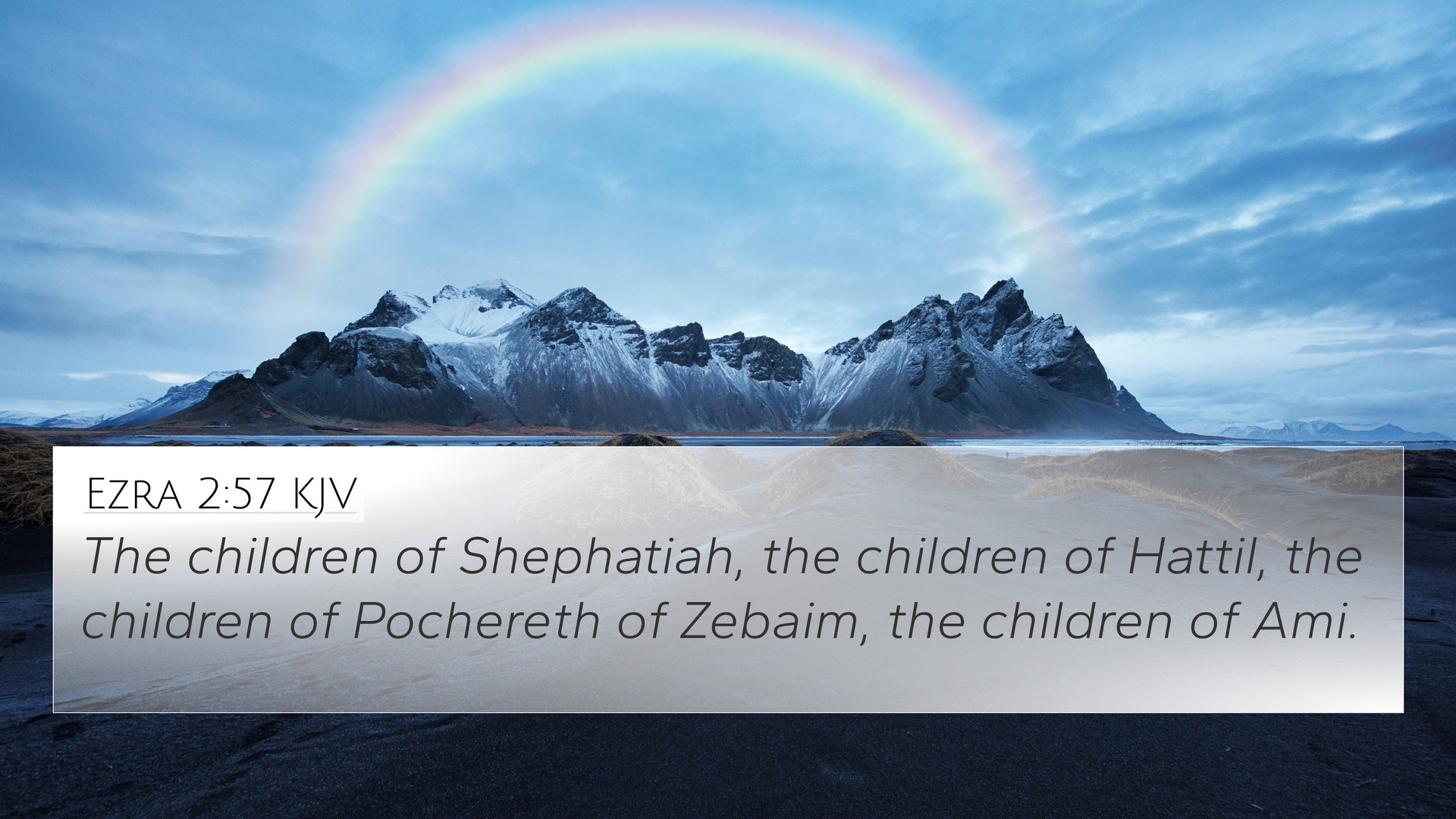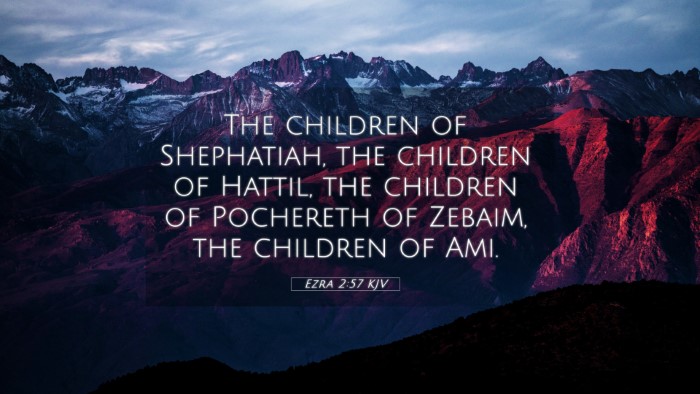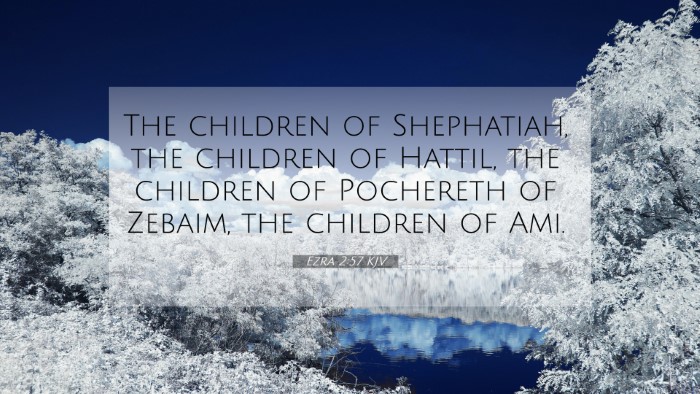Understanding Ezra 2:57
The Bible verse Ezra 2:57 states:
"The children of Solomon's servants: the children of Sotai, the children of Sophereth, the children of Peruda,"
Context and Summary
This verse is part of a larger passage that enumerates the returned exiles from Babylon to Jerusalem after the edict of Cyrus. Ezra provides detailed records of the individuals and families who returned to rebuild the nation of Israel, highlighting the lineages that were significant in the restoration of Jerusalem.
Commentary Insights
Matthew Henry's Commentary
Matthew Henry emphasizes the significance of names and lineage in this passage. He points out that the lists of families serve to affirm the continuity of God’s promise. Each name represents a unit of community and tradition that is being restored. Henry also suggests that the reestablishment of these families was crucial for the social and religious life of Israel.
Albert Barnes' Notes
Albert Barnes provides insights into the historical implications of this verse. He notes that the children of Solomon's servants reflect the remnants of those involved in the temple service during Solomon's reign. Barnes connects this to the theme of restoration, revealing that God is not only bringing back the Israelites but also reinstating the temple service and worship practices. It illustrates the continuity of God’s work throughout generations.
Adam Clarke's Commentary
Adam Clarke explains the genealogical aspect of this verse and connects it to the larger theme of divine order. He suggests that the mention of Solomon's servants shows that even those who were not full Israelites had a place and role in the restoration process. Clarke indicates that God's grace extends beyond ethnic lines, emphasizing inclusion in God’s salvific plan.
Theme Exploration
Ezra 2:57 is rich with themes such as identity, service, and restoration. The verse underlines the importance of community ties and God's unwavering promise to His people. It also sheds light on the historical relevance of those who served in the temple, connecting the past worship practices to the renewed focus on worship in the post-exilic community.
Cross-Referencing Related Verses
- Nehemiah 7:57: Similar listing of the temple servants and their families.
- 1 Kings 9:22: Reference to the servants of Solomon who were tasked with the work in the temple.
- Ezra 2:55: Additional details on the servants and priests returning from exile.
- Matthew 1:12: The genealogy highlighting the lineage leading to Jesus from the exile.
- Zechariah 8:7-8: God's promise to bring back His people to Jerusalem.
- Isaiah 44:1-5: Prophetic assurance of the return of God’s people.
- Romans 11:17-24: The inclusion of Gentiles into the blessings promised to Israel.
Theological Significance
The genealogical lists in Ezra emphasize that God meticulously preserves His people throughout history, ensuring that their identities and roles in His plan are upheld. Each name represents not only individuals but also families that contribute to the life of the community and the future of God's people.
Conclusion
Ezra 2:57 offers a glimpse into the importance of heritage in the biblical narrative. It serves as a reminder of God's promises and the preservation of His people through relational and historical continuities. The verse highlights the integration of various groups into the larger story of redemption, making it a key reflection point for understanding God's overarching narrative throughout Scripture.
Further Study and Application
For those interested in deeper study, utilizing a Bible concordance or a Bible cross-reference guide can enhance understanding of the connections between this verse and other scriptures. Engaging in cross-referencing Bible study allows for a richer exploration of themes such as restoration, community, and God's faithfulness.



